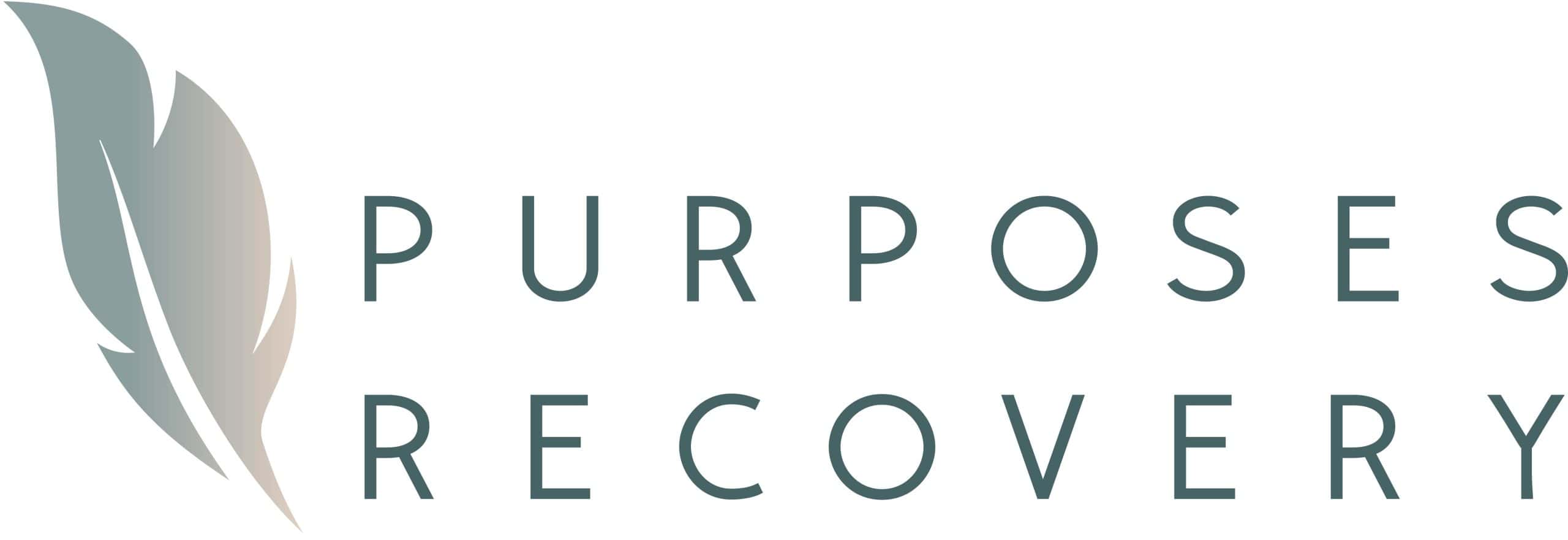EVIDENCE-BASED THERAPIES
Recovery from addiction often looks very different from one person to the next. For this reason (and many others), our programs leverage techniques and methods from across a number of disciplines to meet our clients’ varied needs. Below are some of the therapeutic services that you might expect to receive as a client of Purposes Recovery.
Acceptance and Commitment Therapy (ACT) is a form of cognitive-behavioral therapy that emphasizes mindfulness, acceptance, and values-based action. In ACT, clients learn to accept their thoughts and feelings without judgment while committing to actions that align with their values and goals. Through experiential exercises and mindfulness practices, individuals develop greater psychological flexibility and resilience, allowing them to live more meaningful and fulfilling lives.
Behavioral therapy focuses on understanding and modifying maladaptive behaviors through techniques such as reinforcement, modeling, and systematic desensitization. By identifying the underlying causes of behavior and implementing targeted interventions, behavioral therapy helps individuals develop healthier coping strategies and achieve their goals. This approach is particularly effective for treating conditions such as phobias, obsessive-compulsive disorder (OCD), and attention-deficit/hyperactivity disorder (ADHD).
Group therapy brings together a small group of individuals who share similar struggles or goals under the guidance of a trained therapist. In these sessions, participants have the opportunity to share their experiences, offer support, and learn from one another in a supportive and nonjudgmental environment. Group therapy can be particularly effective for addressing issues such as addiction, depression, anxiety, and interpersonal difficulties.
Individual therapy, also known as psychotherapy or counseling, involves one-on-one sessions between a therapist and a client. These sessions are confidential and provide a safe space for individuals to explore their thoughts, emotions, and behaviors. Through the therapeutic relationship, clients can work towards understanding themselves better, addressing personal challenges, and developing coping strategies to improve their mental health and well-being.
Medication-Assisted Treatment (MAT) involves using FDA-approved medications in combination with counseling and behavioral therapies to treat substance use disorders. MAT helps individuals reduce or eliminate cravings and withdrawal symptoms, making it easier to focus on recovery. By addressing both the physiological and psychological aspects of addiction, MAT can significantly improve treatment outcomes and reduce the risk of relapse.
Psychodynamic therapy is a form of depth psychology that explores the unconscious processes and unresolved conflicts that contribute to psychological distress and interpersonal difficulties. Through open-ended discussions and exploration of past experiences, clients gain insight into the root causes of their symptoms and patterns of behavior. By bringing these unconscious processes into awareness, psychodynamic therapy helps individuals achieve greater self-understanding and emotional healing.
Solution-Focused Brief Therapy (SFBT) is a goal-oriented approach that focuses on identifying and amplifying clients’ strengths and resources to achieve rapid and lasting change. Instead of dwelling on problems and their origins, SFBT encourages clients to envision their preferred futures and develop concrete steps to make those futures a reality. By emphasizing solutions rather than problems, SFBT empowers clients to take control of their lives and build on their existing strengths.
Cognitive Behavioral Therapy (CBT) is a structured, evidence-based approach that focuses on identifying and changing negative thought patterns and behaviors. By challenging distorted beliefs and replacing them with more adaptive ones, CBT helps individuals develop healthier coping skills and achieve lasting improvements in mood and behavior. This approach is highly effective for treating a wide range of mental health conditions, including depression, anxiety disorders, and post-traumatic stress disorder (PTSD).
Case management involves coordinating and facilitating services to meet the diverse needs of individuals, particularly those with complex health or social issues. Case managers work closely with clients to assess their needs, develop personalized care plans, and connect them with resources and support services in the community. By advocating for clients and ensuring continuity of care, case management helps individuals navigate complex systems and achieve their goals for health and well-being.
Dialectical Behavior Therapy (DBT) is a type of cognitive-behavioral therapy that combines traditional CBT techniques with mindfulness and acceptance-based strategies. DBT is particularly effective for individuals with borderline personality disorder (BPD) and other conditions characterized by emotional dysregulation and interpersonal difficulties. By teaching skills such as mindfulness, distress tolerance, emotion regulation, and interpersonal effectiveness, DBT helps clients build resilience and improve their quality of life.
